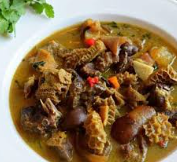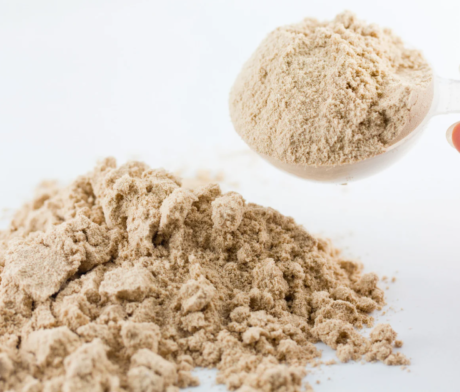Scent leaves -Efirin – per pack (Subscriber price only)
Description
Scent leaf, scientifically known as Ocimum gratissimum, is a highly aromatic herb widely used in Nigerian cooking for its strong, pleasant fragrance and flavor. Known as Efinrin in Yoruba, Nchanwu in Igbo, and Daidoya in Hausa, it adds a unique taste to soups, stews, and sauces. Aside from its culinary role, scent leaf is also valued for its medicinal and health-boosting properties in traditional medicine.
Sources
Grown across Nigeria, particularly in home gardens and farms in the South-West, South-East, and Middle Belt regions. It thrives in both the rainy and dry seasons.
Health Benefits
-
Boosts immunity due to its rich content of vitamins and antioxidants.
-
Aids digestion and helps relieve bloating and stomach discomfort.
-
Antibacterial and antifungal properties help fight infections.
-
Helps regulate blood sugar when consumed regularly.
-
Relieves cough and cold when boiled and taken as herbal tea.
Common soups or dishes you can use it for
-
Pepper soup
-
Yam porridge
-
Ofada sauce (Ayamase)
-
Vegetable sauce for rice or yam
-
Ogbono soup (for added flavor)
Tigernut Powder (Subscriber price only)
Wholesale Organic Raw Tigernut for Food and Beverage Manufacturing
Min Order : 1000kg
Shoko -per pack (Subscriber price only)
Description
Shoko, also called Lagos spinach or celosia leaves, is a traditional Nigerian leafy vegetable native to tropical Africa. It is widely grown in Nigeria, particularly in the Southwest, and is prized for its slightly bitter taste which mellows when cooked.
Sources
Lagos, Ogun, Oyo, Osun, and Ondo states.
Health benefits
-
Rich in antioxidants – helps fight free radicals and support cell health.
-
High in vitamin C – boosts immunity and promotes wound healing.
-
Good source of folate – important for red blood cell production and pregnancy health.
-
Contains iron – supports blood health and energy levels.
-
Aids digestion – thanks to its dietary fiber content.
Common soups you can use it for
-
Efo Riro (traditional Yoruba vegetable stew)
-
Efo Shoko (Shoko-based vegetable sauce)
-
Egusi Soup (melon seed soup with greens)
-
Ogbono Soup
-
Okra Soup
Ewedu- per pack (Subscriber price only)
Description
Ewedu (Corchorus olitorius), also known as jute leaves, is a slimy, green leafy vegetable that is a staple in Yoruba cuisine. When cooked, it has a slippery texture, similar to okra, which makes it easy to swallow. The leaves are usually blended or whisked after boiling to achieve a smooth, viscous consistency. Ewedu is prized for its unique taste and texture, as well as its rich nutritional value.
Sources
Primarily cultivated in the southwestern states of Nigeria but also grown in other regions with warm, moist soil. It is commonly sold fresh in open markets and can also be home-grown in backyard gardens.
Health Benefits
-
Rich in vitamins A, C, and E, which promote good eyesight and healthy skin.
-
Supports digestion due to its mucilaginous (slimy) texture.
-
Boosts immunity and helps fight infections.
-
Promotes bone and teeth health with its high calcium content.
-
Aids postpartum recovery in women.
Common soups or dishes you can use it for
-
Ewedu soup (often served with amala and gbegiri)
-
Ewedu with stew and assorted meats
-
Mixed vegetable soups with okra
-
Ewedu with melon (egusi) combination soups
Utazi -per pack(Subscriber price only)
Description
Utazi, scientifically known as Gongronema latifolium, is a slightly bitter-sweet, aromatic leaf used both as a spice and vegetable in Nigerian cuisine. It is native to West Africa and is highly valued for its medicinal properties as well as its flavor-enhancing qualities in soups and traditional dishes.
Sources
Enugu, Abia, Anambra, and Ebonyi.
Health benefits
-
Aids digestion – helps reduce bloating and improve bowel movement.
-
Supports blood sugar regulation – beneficial for people with diabetes.
-
Rich in antioxidants – helps protect the body from oxidative stress.
-
Boosts immunity – contains vitamins and minerals that strengthen the immune system.
-
Improves appetite – often used in traditional medicine to stimulate hunger.
Common soups you can use it for
-
Nsala Soup (White Soup)
-
Oha Soup
-
Bitterleaf Soup (Ofe Onugbu)
-
Pepper Soup
-
Yam Pepper Soup with Fish or Meat











